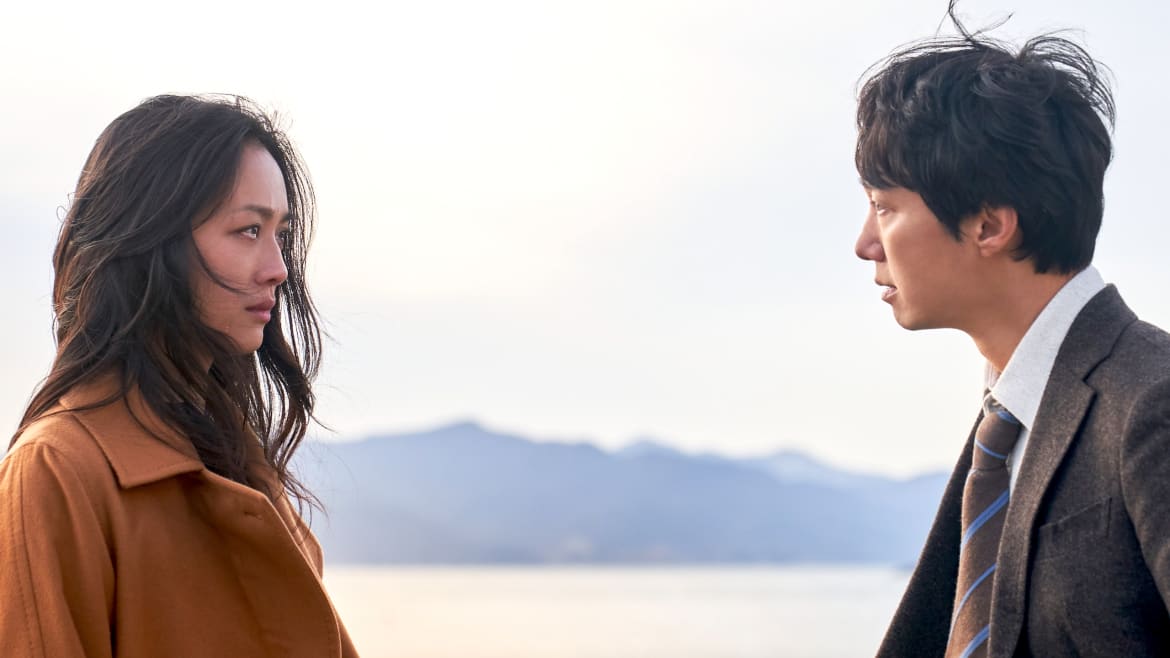Mubi
Park Chan-wook is the heir apparent to Alfred Hitchcock (and, by extension, Brian De Palma), and Decision to Leave is further proof that no one does modern erotic thrillers quite like him. Earning Park the best director prize at this year’s Cannes Film Festival, the film—now in theaters and on Mubi, following its recent bow at the New York Film Festival—is a spellbinding swirl of romance, passion, and projection, all of it enlivened by beguiling secrets and formal sumptuousness. Like his prior Oldboy and The Handmaiden, it’s a genre work of superior, silken craftsmanship, so sinister, serpentine and sexy as to be downright swoon-worthy.
In a Busan envisioned as a constricting (and exhausting) maze, detective Hae-joon (Park Hae-il) is tasked with investigating the death of a man who fell while climbing an enormous rock formation. In the first of many wry comedic moments, Hae-joon forces his younger and more reckless partner Soo-wan (Go Kyung-pyo) to scale that peak in reverse as a method of tracing the victim’s final path. The urge to assume someone else’s point of view is central to Decision to Leave, and Park underscores that via a heady onslaught of compositions from various POVs (and high and low angles), fantasy sequences in which people imagine themselves in different spaces, and innumerable shots involving mirrors and reflective surfaces. Couple that with a fixation on diagonal visual lines—be it halls, staircases, ramps, passages or other cockeyed architectural structures—as well as windows and doorways that box in characters, and the film proves a fantasia of ever-shifting vantage points.
To augment that atmosphere, Park employs an array of velvety pans, urgent zooms into and out of close-up, and montages set to contrapuntal audio. Also featuring Jo Yeong-wook’s Bernard Herrmann-esque score of anxious and sensual woodwinds and strings, the director’s aesthetics are marvelously intoxicating, creating a mood that’s equal parts Vertigo, Body Double, and In a Lonely Place. Co-written by Jeong Seo-kyeong, Park’s script moves at a pace that’s so fast as to be initially unsettling. Yet his images—edited together with hypnotic grace by Kim Sang-bum—are so expressive and suggestive that it’s easy to not only keep up with the proceedings’ twists and turns, but to be swept away by the dreamy action.

